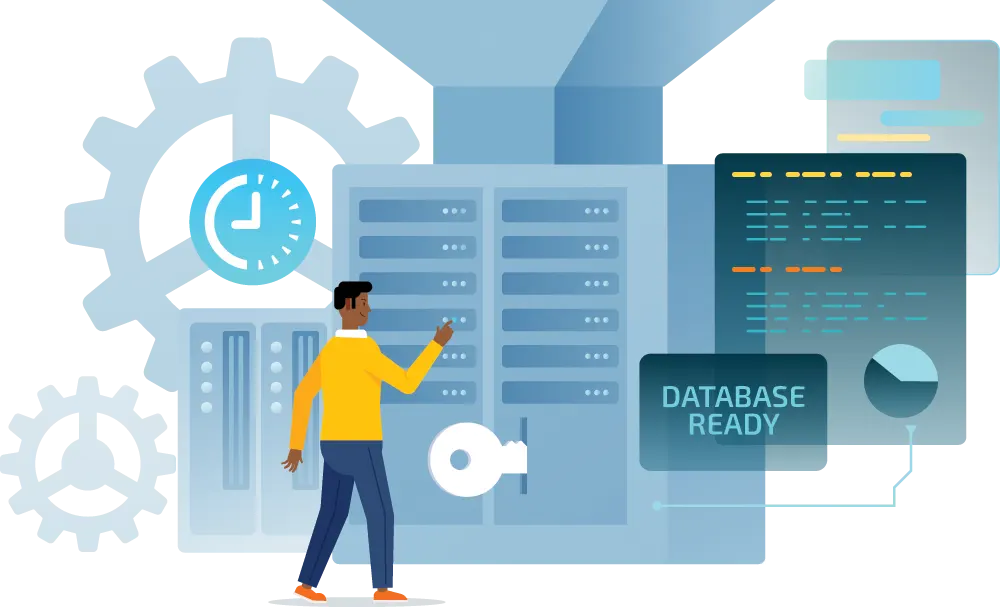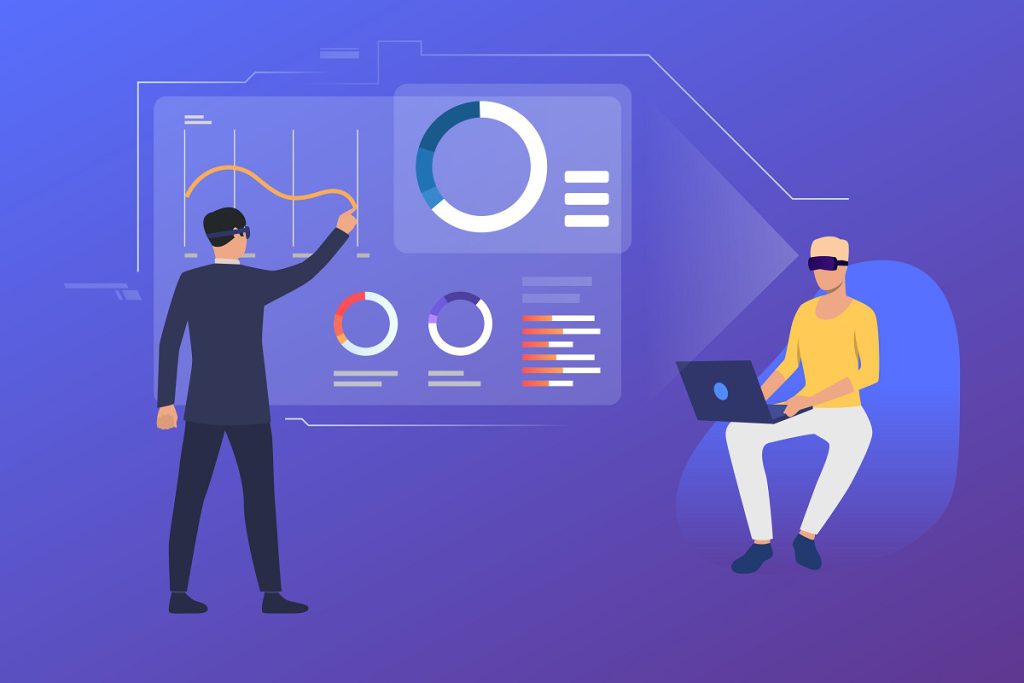Optimize data architecture with top-notch Enterprise Data Lake Engineering Services. Unify data silos, enhance security, and achieve data-driven success.
Businesses in modern times need efficient data management for gaining business insights and making informed decisions for driving innovation for business growth and sustainability.
Enterprise Data Lake Engineering services have emerged as a powerful solution to address data complexities, ensuring accessibility, quality, and scalability.
This article will explore Enterprise Data Lake Engineering Services and its significance for business in data management.

What do enterprise data lake engineering services mean?
Enterprise Data Lake Engineering Services is a professional service provided by a data lake engineering company to design, implement, and manage a centralized repository that stores and processes vast amounts of structured and unstructured data from various sources within an organization.
For instance, a financial institution could employ Enterprise Data Lake Engineering services to build a unified platform that collects and analyzes customer transaction data, social media interactions, and market trends, enabling better decision-making, personalized services, and risk assessment.
Read: Professional Data Engineering Services for Small Businesses
Understanding Data Lake Engineering Architecture
In the data processing layer, data comes from business applications, enterprise data warehouses, multiple documents, SaaS apps, device logs, and Internet of Things (IoT) apps.
This layer also has built-in apps that help with data governance, security, and administration for object storage, meta storage, and replications.
The data processing layer communicates with the target enterprise data warehouse, analytics dashboard, data visualization application, and data science projects with the help of the ETL API.
The significance of Data lake engineering for data-driven business
Data-driven business owners want to harness the power of data, and for this, they want to leverage their data effectively.
Data lake engineering involves designing, building, and managing this repository to maximize its value and usability for analytics, insights, and decision-making. Here’s why data lake engineering is significant for data-driven businesses:
#1. Data Consolidation:
Data-driven businesses often deal with data from various sources and formats. Data lake engineering facilitates consolidating diverse data types (e.g., text, images, logs, and sensor data) into a single, accessible location.
This eliminates data silos and makes it easier to perform comprehensive analyses.
Read: Streamline Your Business with Microsoft CRM Integration Services
#2. Scalability and Flexibility:
Data lakes are designed to scale horizontally, accommodating massive amounts of data as the business grows. Proper engineering ensures the data lake can handle increasing data volumes, providing flexibility to adapt to changing business needs.
#3. Cost Efficiency:
Data lakes can be built on cost-effective storage solutions, such as cloud-based platforms, which help reduce infrastructure costs.
Data lake engineering ensures the optimal use of resources and cost-effective storage solutions, making it economical for businesses to store and process large datasets.
#4. Data Variety and Exploration:
Data lakes accept structured and unstructured data, enabling data scientists and analysts to explore diverse data sources without requiring extensive data transformation.
This encourages innovation by allowing for new insights from previously untapped data sources.
Read: How a Custom Software Engineering Services Company Catalyzes Success
#5. Advanced Analytics:
A carefully built data lake is a strong base for advanced analysis, like teaching computers to learn and act smart (machine learning) and making computers do tasks that require human-like thinking (artificial intelligence).
Data scientists can access raw data, perform feature engineering, and develop models to gain deeper insights and drive predictive and prescriptive analytics.
#6. Real-time Analytics:
Data lakes can ingest real-time data streams, enabling businesses to analyze and respond to events as they happen.
Practical engineering ensures data ingestion, processing, and analytics pipelines can handle real-time demands.
#7. Data Governance and Security:
Data lake engineering includes implementing robust data governance and security practices.
Access controls, encryption, and monitoring mechanisms help ensure data privacy and regulation compliance, fostering trust among customers and partners.
#8. Self-Service Analytics:
A well-structured data lake with appropriate metadata and cataloging allows business users to perform self-service analytics.
They can discover and access relevant data without heavy reliance on IT teams, accelerating decision-making processes.
Read: How Software Product Engineering Companies Turn Ideas into Products
#9. Data Quality and Cleansing:
Data lake engineering involves data quality checks and validation processes. By identifying and addressing data quality issues at the ingestion stage, businesses can maintain accurate and reliable data for analysis.
#10. Innovation and Competitive Advantage:
Data-driven businesses that effectively engineer their data lakes can quickly experiment with new data sources, models, and analytics approaches.
This promotes innovation and provides a competitive edge by enabling rapid adaptation to market changes and emerging trends.
Conclusion
In conclusion, implementing Enterprise Data Lake Engineering Services represents a transformative step forward for organizations aiming to streamline their data management practices.
Businesses can unlock new dimensions of data-driven decision-making by leveraging the power of a centralized repository capable of accommodating diverse data types and scales.
Moreover, the importance of enterprise data lake engineering services goes beyond just immediate advantages. By cultivating an environment that encourages self-directed data analysis, real-time understandings, and innovative data-centric approaches, businesses can establish a leading presence within their sectors.
The capability to utilize raw data alongside thorough evaluations of data quality provides decision-makers with the assurance to depend on the precision and pertinence of the available information.
More Great Contents:
- Software Engineering Services Importance for Business Growth
- Streamline Your Business with RPA as a Service and Solutions
- Trends in Robotic Process Automation for Expanding It
Follow us on Facebook and Twitter for more CRM updates and information.




